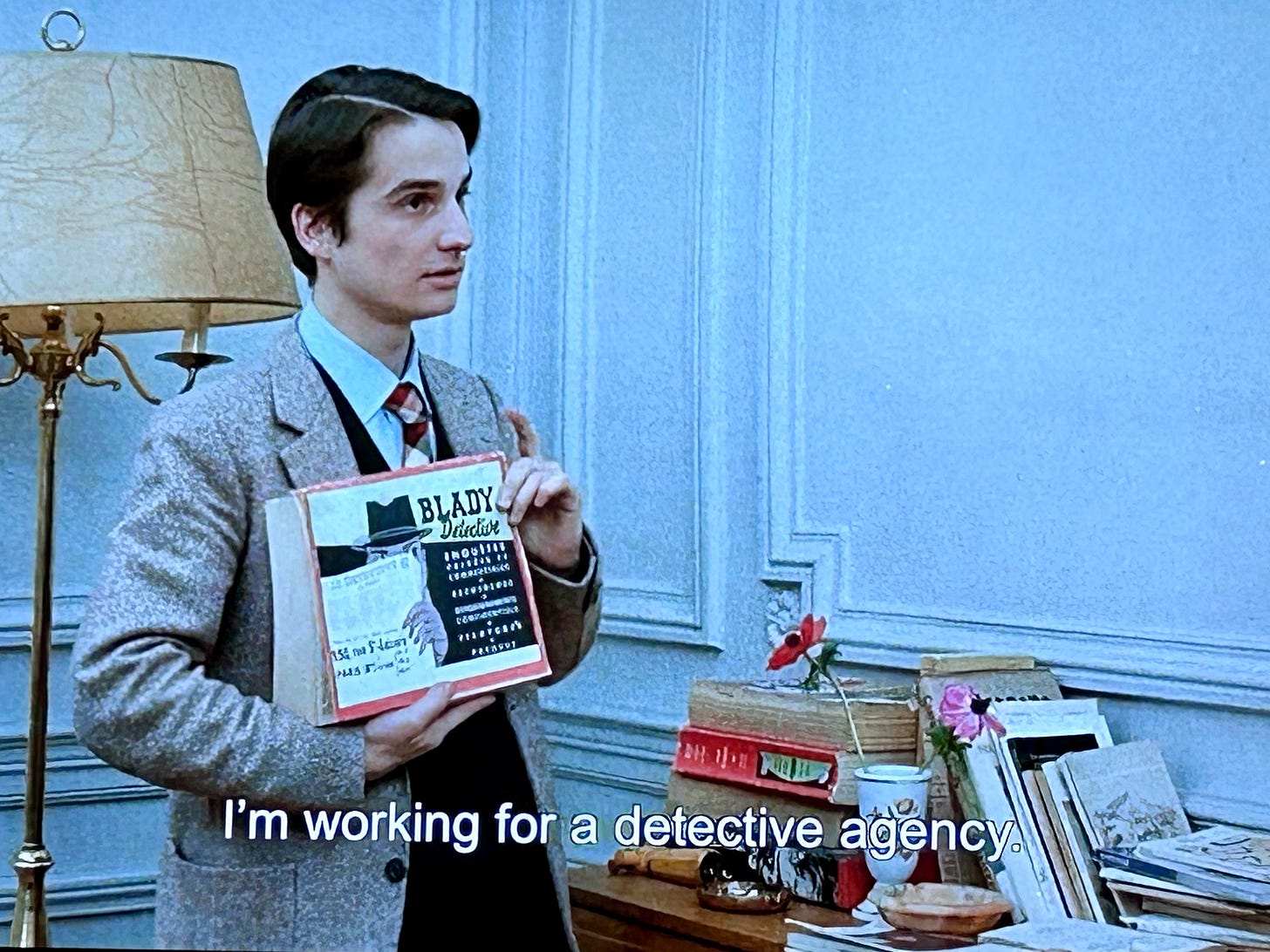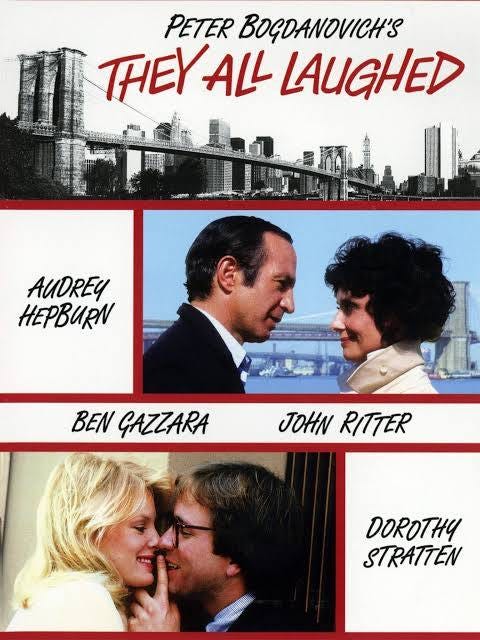The Last Exile has a release date of March 25! Never too early to pre-order, and it helps keep bookstores stocking the Wakeland series. Thanks!
In film, the private investigator is usually a loner, perhaps with an attractive secretary or eccentric sidekick. That’s the formula, handed down from Spade and Marlowe to the rest of us, all the way to Kinsey Milhone and Easy Rawlins. An individual fighting against the odds underpins a lot of these stories, even when, like Jake Gittes in Chinatown, the PI had operatives who work for them.
But there’s a subgenre of PI story that focuses on the group rather than one person. Joe Gores wrote a series about Dan Kearny and Associates (DKA), a San Francisco agency that functions sort of like Ed McBain’s 87th Precinct (and every cop procedural which lifted its structure): a diverse group of agents handle a variety of cases, from repossessions to racketeering. (Contract Null and Void is a good entry in the series). Gores, a former PI himself, also wrote Hammett and a prequel to the Maltese Falcon called Spade and Archer.
The very good and underrated British series Vincent starred Ray Winstone as the head of a PI agency. While a lot of the stories were about Vincent and his personal life, his operatives were fleshed out characters who drove many of the B stories.
Two worthwhile auteur films, Francois Truffaut’s Stolen Kisses and Peter Bogdanovich’s They All Laughed, used a bustling PI agency to romantic and comedic effect. Both are indisputably PI films, but unlike the archetype.
Stolen Kisses is the third film Truffaut made about Antoine Doinel, the juvenile delinquent from The 400 Blows, played by Jean-Pierre Leaud but modelled on Truffaut’s own life. In Stolen Kisses Doinel has been drummed out of the army, and the woman he loves sees him as a family friend. Given a desk job at a hotel, he sees a pair of PIs set up an unfaithful spouse for a divorce case; Doinel loses his job, and is hired by them as the newest member of the Blady Detective Agency.
The cases Blady handles are mildly surreal. Matrimonial surveillance is top of the list, but a shore store owner hires them to find out why he’s unpopular. Doinel goes undercover at the shop, where he develops a crush on the owner’s wife.
If Wes Anderson made a PI film it would look like Stolen Kisses, which is stylish and playful and unexpectedly touching. “Forgive me if I seem to be foaming at the mouth over Stolen Kisses,” Paul Schrader wrote in the L.A. Times, “but it is so rare to see a comedy that is genuinely funny.” Truffaut can do noir as well as anyone, but this captures the romantic appeal of the genre; Stolen Kisses likely influenced both Bored to Death and the self-referential detective novels of Lethem and Auster.
They All Laughed is a ‘lost’ Peter Bogdanovich film, shelved for a time after the death of its co-star and Bogdanovich’s girlfriend Dorothy Stratten. I wrote about Stratten and Star 80 for Montecristo, but suffice to say, the murder casts a pall on a very lighthearted film.
In They All Laughed, Ben Gazzara and John Ritter play two operatives at a detective agency that specializes in matrimonial cases. Both fall in love with the married women they’re hired to surveil—Audrey Hepburn in Gazzara’s case, Stratten in Ritter’s.
I don’t know if Stratten would have been a bigger star, but she gives a solid performance. Everyone is good in They All Laughed. Colleen Camp is the standout to me, playing a country singer drawn into the investigations. The film capture’s New York’s urban cowboy fad, and while it’s not funny, it’s pleasant.
The ensemble PI story lends itself more to comedy and romance than the lone operative fighting against the system. Doubtless part of its charm is playing against that loner archetype. In any case, it’s a less well-known but viable branch of the genre that probably deserves to be resurrected.




